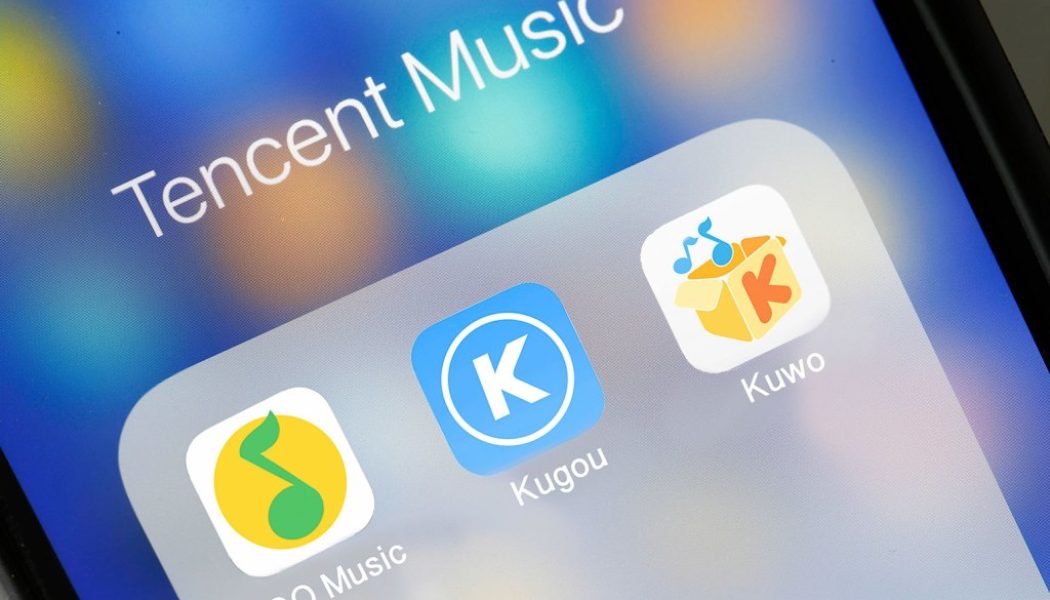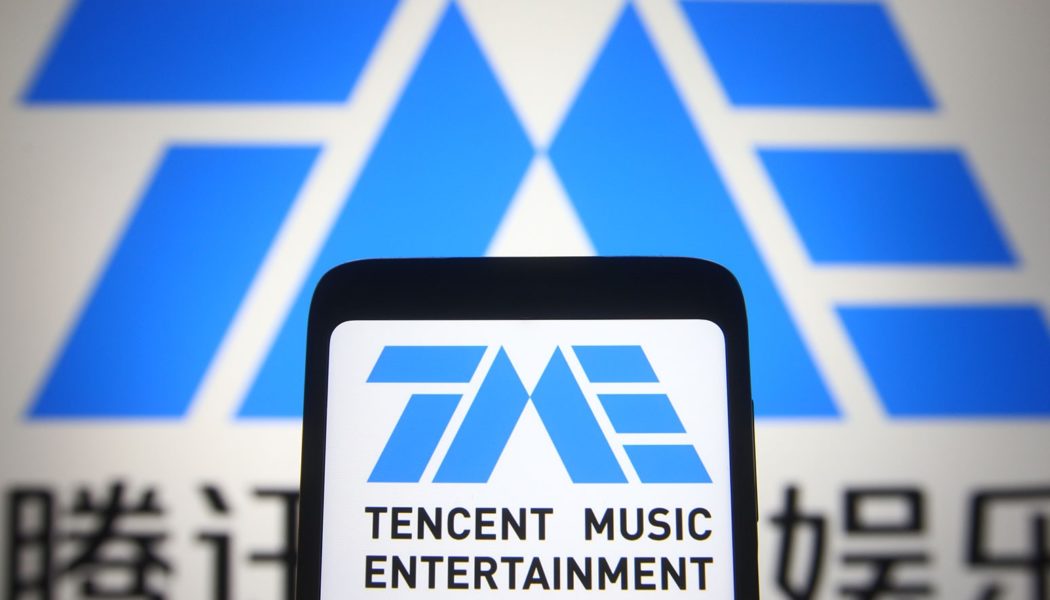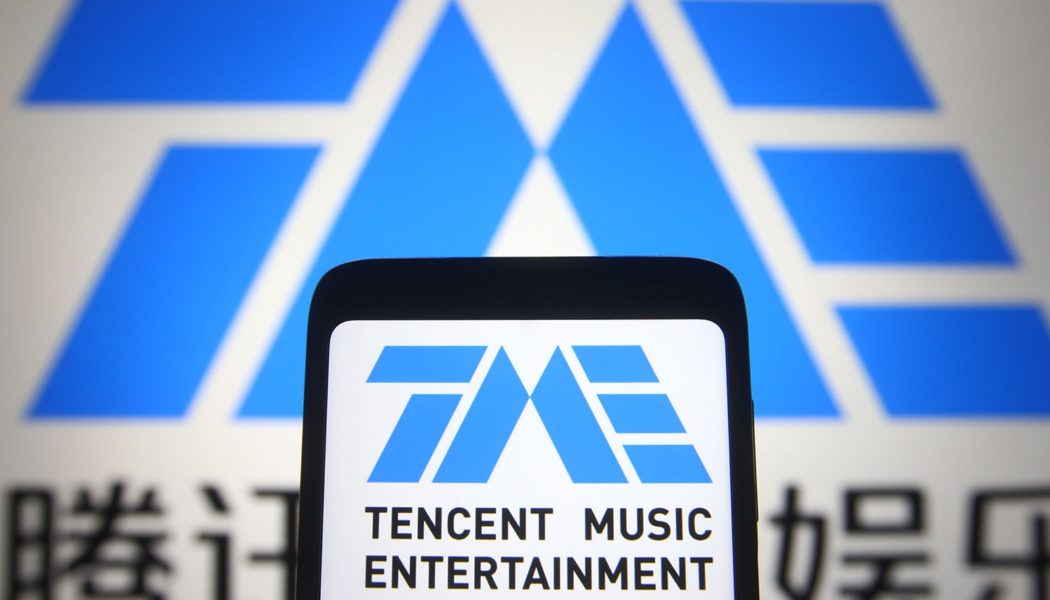Tencent Music Entertainment
Tencent Music Revenues Fall 15%, Subscriptions Grow Amid Regulatory ‘Headwinds’
The effects of government intervention on Tencent Music Entertainment, the leading music streaming platform in China, were visible in the first quarter as the company’s revenues dropped 15.1% to RMB 6.64 billion ($1.05 billion) from the prior-year period. Shenzhen-based TME operates QQ Music, Kugou Music, Kuwo Music and WeSing. In a statement, executive chairman Cussion Pang attributed the decline to “headwinds in an evolving market landscape,” a reference to the difficulties created by increased Chinese regulations and increased competition from Cloud Village, the music streaming platform spun off by Netease in Dec. 2021, and Quishiu Yinyue, a new music service by Douyin, the Chinese version of short-form video platform TikTok. The quarterly report’s bright spot was music subscripti...
The Ledger: Tencent Music Highlights Risks of Doing Business in China
Doing business in China got tougher in 2021 after government agencies handed down new rules and levied fines against some well-known companies. For evidence this has made investing in Chinese companies more complicated, look no further than Tencent Music Entertainment’s annual report released Tuesday. All publicly traded companies’ financial statements include risk factors mandated by the Securities and Exchange Commission to help investors understand companies’ unique challenges and possible negative outcomes if things go south. TME’s previous annual reports have listed numerous risk factors, ranging from licensing third-party content to its corporate structure. It’s a long list that just got longer. The new risk factors in TME’s 2022 annual report are further evidence of the challenges f...
Tencent Music Ekes Out 3% Revenue Gain After Tough Quarter
At the end of the quarter, QQ Music’s daily video views and viewers reached 100mm and 18mm respectively, representing triple-digit annual growth. Music streaming services may bear the name “music” but are increasingly “pan-entertainment,” a term TME used to describe competitors that lured away its “casual users” and caused monthly average users to drop from the second quarter. (Music users’ average revenue per user slid to 8.9 RMB ($1.39) from 9.4 RMB ($1.47) in the prior-year period.) In addition to focusing on videos, TME is building its live-streaming business, used by 10,000 musicians by the end of the third quarter, and long-form audio — audiobooks, podcasts — that reach 140 million users monthly, up 89% increase year over year...
Tencent Music Value Plummeting Amid Regulatory Uncertainty in China
The Chinese government has unleashed 50 regulatory actions — mostly affecting tech companies in recent months, by The Economist’s count, that has created what Richard Kramer, managing partner of Arete Research, called “a tsunami of uncertainties.” Investors have reacted by pricing their uncertainty into Tencent Music’s stock price. Its shares currently trade at 27.1 times forward price-to-earnings compared to 44.2 on March 31, according to Refinitiv. At its all-time high price, Tencent’s market capitalization almost equal with that of Spotify. Now, at roughly $17 billion, Tencent Music is worth 41% of Spotify’s roughly $41 billion market capitalization. The problems began in July when China’s State Administration for Market Regulation aimed to reduce Tencent Music’s market dominance ...
Tencent Music Shares Fell 9.2% This Week, Down 63.2% Since March All-Time High
Tencent Music sits in a web of relationships and ownership stakes with the world’s largest music companies. It has a joint venture with Universal Music Group and an agreement to form a joint record label with Warner Music Group. It also has licensing deals with UMG, WMG, Sony Music and independent label rights group Merlin. What’s more, Tencent Holdings, which owns a majority of Tencent Music, is part of a consortium of investors that owns 20% of Universal Music Group and about 2% of WMG. There is no indication Chinese authorities view Tencent Holdings’ ownership stakes as problematic. Tencent Music owns three of China’s top music streaming apps — QQ, Kuguo and Kuwo — and accounted for 7...
Tencent Music Reports Steady Q1 as China’s Streaming Market Grows
In 2020, China had the fourth largest music streaming market globally, growing 90.7% to $718 million, according to IFPI. Just as Western music services are jumping into podcasts, TME is making a hard push into long-form audio — mainly audiobooks — in what Cussion Pang, chairman of Tencent Music, said in a statement is an “evolution into an all-in-one online music and audio entertainment destination in China.” TME isn’t turning this plan into more money just yet: average revenue per subscriber dropped 1.1% to 9.3 yuan ($1.44) from the first quarter of 2020. Long-form audio does, however, make the music apps stickier by increasing engagement: in Q1 2021, the percent of monthly active users who listened to long-form audio improved to 20.0%, compared to 5.5% in Q1 2020 and 15% in Q...
Tencent Music Entertainment Grew Subscribers 10% to 4.6M In Third Quarter
Tencent Music’s music apps fared relatively well, with paying users growing 7%, 10.3% and 9.8% in the first, second and third quarters. Revenue didn’t keep the pace as third quarter paying users were just 0.3% over the final 2019 count. Music subscribers grew by 4.6 million to 51.7 million, up 46% year-over-year and up 9.8% from the second quarter. In unit terms, subscriber growth improved on the 2.8 million in the first quarter and 4.4 million in the second quarter. Music monthly active users (MAU) fell 2.3% to 646 million, down from 661 million in the prior-year period Monthly music ARPU (average revenue per user) grew 5.6% to 9.4 yuan ($1.42) Signs of the COVID-19 pandemic are visible on Tencent Music’s metrics. In the first quarter, as much of China was under lockdown orders, Tencent M...













